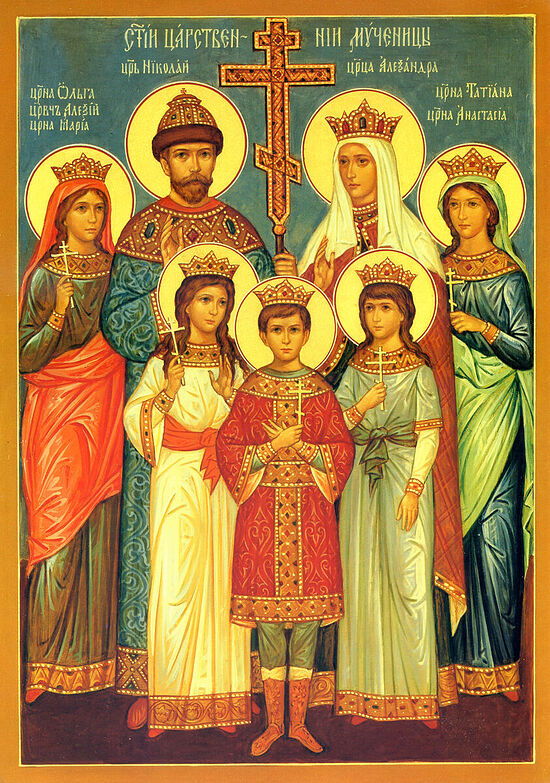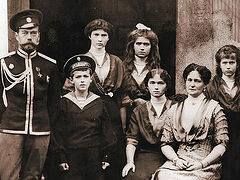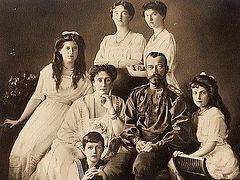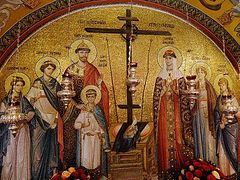After the death of Saul, who fell on his sword during the battle with the Philistines, an Amalekite ran to inform David, whom Saul was persecuting at that time.
Assuming that David would be very pleased with the news, he decided to present himself as Saul’s killer to thereby increase the anticipated reward.
However, after hearing the Amalekite’s made-up story about how he killed the wounded Saul at his own request, David rent his clothes, as did all those who were with him. They wept and wailed and fasted until evening. And David said unto the young man that told him, Whence art thou? And he answered, I am the son of a stranger, an Amalekite. And David said unto him, How wast thou not afraid to stretch forth thine hand to destroy the Lord’s anointed? And he ordered one of the servants to kill him. At the same time, David said, Thy blood be upon thy head; for thy mouth hath testified against thee, saying, I have slain the Lord’s anointed (1 Kg./Sam. 1:13-16).
Thus was executed a foreigner who posed as Saul’s murderer. He was subjected to a cruel execution, although Saul had done much evil for which the Lord had renounced him, and he was a persecutor of the innocent David.
It is clear from David’s words that he doubted the veracity of the Amalekite’s story and was not convinced that he was Saul’s murderer, but he gave him over to death, considering it deserving of death even just to call oneself a regicide and to boast of this act.
How many times more grave and more sinful is the murder of the Orthodox Anointed of God; how much greater a punishment should lie on the murderers of Tsar Nicholas II and his family?!
Unlike Saul, who departed from God and was abandoned by Him for it, Tsar Nicholas II was an example of piety and complete devotion to the will of God.
Having received not the Old Testament libation of oil on the head, but the grace-filled “seal of the gift of the Holy Spirit” in the Sacrament of Anointing, Emperor Nicholas II was faithful to his calling to the end of his life, aware of his responsibility before God.
In his every act, Emperor Nicholas II gave an account to his conscience, ever “walking before the Lord God.” “The most pious” in the days of his earthly well-being not only in name, but in very deed, he showed patience in the days of his trials, similar to the patience of the Righteous Job.
The hands of criminals were raised against such a Tsar—moreover when he was already purified from the trials he endured, like gold in a crucible, and was an innocent sufferer in the fullest sense of the word.
The crime against Tsar Nicholas II is even more terrible and sinful because his entire family, including completely innocent children, was killed with him!
Such crimes don’t go unpunished. They cry out to Heaven and bring God’s wrath down upon the earth.
If a foreigner—the supposed murder of Saul—was put to death, then for the murder of the defenseless Tsar-Sufferer and his family the entire Russian people now suffer, having committed a terrible atrocity and remaining silent when the Tsar was subjected to abasement and imprisonment.
God’s righteousness requires of us a deep awareness of the sinfulness of what we have done and repentance before the memory of the Tsar-Martyr.
The memory of the innocent Princes Sts. Boris and Gleb aroused the conscience of the Russian people during the Times of Trouble and put to shame the princes who started the strife. The blood of the holy Grand Duke Igor produced a spiritual revolt in the souls of Kievans and united Kiev and Chernigov by the veneration of the murdered holy prince.
With his blood, St. Andrei Bogoliubsky consecrated the monarchy of Rus’, which was established much later, after his martyrdom.
The veneration of St. Michael of Tver throughout Russia healed the wounds on the body of Russia caused by the struggle between Moscow and Tver.
The glorification of the holy Tsarevich Dimitri cleared the conscience of the Russian people, breathed moral strength into them, and after severe turmoil led to the rebirth of Russia.
Tsar-Martyr Nicholas II and his much-suffering family are now numbered among these passion-bearers.
This greatest of crimes committed against him must be atoned for by the fervent veneration of him and the glorification of his feat.
Rus’ must bow before the humiliated, slandered, and tortured one, as the people of Kiev once bowed before the Venerable Prince Igor, whom they had tortured; as the people of Vladimir and Suzdal before the murdered Grand Prince Andrei Bogoliubsky!
Then the Tsar-Passion-bearer will have boldness before God, and his prayer will save the Russian land from the disasters it endures.
Then the Tsar-Martyr and those who suffered with him will become new Heavenly defenders of Holy Rus’.
Innocently shed blood will revive Russia and cover it with new glory!




